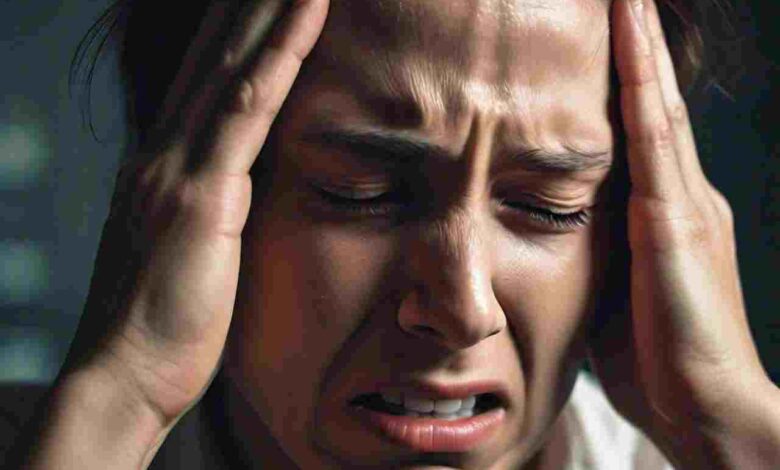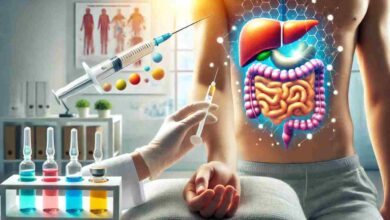What Causes Sperm Cramps and How to Address Them

Sperm cramps, are the name for the mood that may appear only occasionally or be a constant background and create problems with sexual activity. Knowing what causes these symptoms and how to fix them will ease the discomfort they cause.
What Causes Sperm Cramps?
There can be different physical, psychological and medical reasons for sperm cramp. These causes are essential to know for an efficient management.
1. Prolonged Arousal Without Ejaculation
One of the most frequent causes for sperm cramps happens to be due a long arousal without ejaculation. Commonly referred to as blue balls, it happens when the blood pools in your genital area from lack of release and results in you feeling hot discomfort and cramping.
2. Infections and Inflammations
Infections like epididymitis (infection of the epddynis) or orchiti can cause a lot od pain ans cramps. Testicular pain because of Urinary tract infection (UTI) and Sexually transmitted infections (STI)?
3. Physical Strain and Trauma
Cramps occur due to overuse of the muscles in the groin area, such as injury from strong exercise or heavy lifting. On top of that, trauma or injury to the testes will also lead to inflammation and pain in the area as well.
4. Testicular Conditions
Problems such as testicular torsion and varicocele can cause terrible cramping. If a woman has one of these conditions, she needs medication.
5. Psychological Factors
Stress, anxiety, and sexual frustration may also trigger a sperm cramp. Reproductive cramps are also caused by psychological factors that create muscle tension and prevent the muscles of your reproductive organs from relaxing.
6. Hormonal Imbalances and Medical Conditions
Reproductive system muscle spasms This hormone is due to hormonal imbalances, along with suffering from conditions such as multiple sclerosis or neurological disorders and may increase the likelihood of experiencing muscle spasms in reproductive organs.
Symptoms of Sperm Cramps
The symptoms of sperm cramps can vary in intensity and duration. Common symptoms include:
- Pain or discomfort in the testicles during or after ejaculation
- Swelling or tenderness in the testicles
- Lower abdominal or groin pain
- Pain during urination or sexual intercourse
- Nausea and, in severe cases, fever and chills
How to Address Sperm Cramps
When it comes to relieving sperm cramps, a thorough and integrated approach is needed that involves immediate aid as well as long-term planning. Next, have a detailed look at the ways you manage sperm cramps and ease discomfort:
Immediate Relief Strategies
When experiencing sperm cramps, immediate relief can be achieved through various methods. These strategies focus on reducing pain and discomfort quickly.
Ejaculation: The fastest way to relieve the Sperm, which in many cases occurs when erection is stretched off for long time before ejaculation (sufficient arousal instead or along with good foreplay stimulation), ejaculation. This helps to ease the pressure and discomfort caused by blood, fluids building on genitalia.
Over the Counter Pain Medication: Nonprescription pain relievers, such as ibuprofen or acetaminophen, can help reduce the sperm-induced cramps. These medications provide mild to moderate relief and are readily available.
Warm or Cold Compresses: A warm compress can relieve muscle stiffness and increase blood flow for more relaxed cramps. On the other hand, a cold compress can freeze that area and reduce inflammation to give you instant – though temporary relief from an acute episode of pain.
Rest and Avoidance of Sexual Activity: Rest in between gives the body chance to recover and rest hence, reducing muscle fatigue. If activity such as running seems to provoke symptoms, it is best to avoid that type of exercise so you do not risk more irritation and pain.
Proper Support: While the injury is healing, wearing supportive undergarments or an athletic supporter can alleviate some of the tension on your testicles and offer relief from pain. When it comes to symptom management, this simple step can make a world of difference.
Long-term Preventive Measures
In sperm cramps, lifestyle changes and good health habits are key for long-term management and prevention. Read on for only the best strategies.
Regular Ejaculation: Practicing regular ejaculation either through sex or masturbation is known to reduce the frequency of sperm cramps and prevents tension from building up. This helps in maintaining the digestive and reproductive system pure from any kind of congestion.
Hydration and Diet: Keeping yourself well-hydrated is key for the health of your muscles in general, but this includes those responsible for control over ejaculation. Incorporating a diet that includes plenty of anti-inflammatory fruits, vegetables and grain can improve overall reproductive health which decreases the likelihood for cramps.
Stress Management: Psychological elements corresponding to stress and anxiousness is the opposite issue for sperm cramps. Doing yoga, having a meditation habit or seeing a therapist might help to reduce stress and even lead to fewer cramps.
Treating Underlying Infections: If one is suffering from infections like epididymitis or urinary tract infection, there can be a cramp in his sperms. The antibiotic is given specifically in a timely manner along with proper medical care helps to eradicate the infection completely thereby preventing recurring of pain.
Surgical Intervention: Though rarely recommended (since surgery can worsen the condition), some cases of varicocele or testicular torsion will require surgical intervention. These surgeries are able to address the root of the problem and then you have real long-term relief from a lifetime of pain, frustration.
Lifestyle Adjustments: Positive adjustments in lifestyle can lessen the amount and seriousness of spermatic torsion. These include keeping your weight healthy, good hygiene practices and avoiding too much alcohol or smoking. Procrastinate on Regular Physical Exercise With time, the overall health can fall behind Better-off – in multiple sense.
When to Seek Medical Help
Most cases of sperm cramps can be controlled with these at-home treatment options or lifestyle changes, but you should talk to your doctor if: If you have any of the following symptoms, see your healthcare provider:
- Sudden and severe testicular pain
- Persistent pain lasting several hours or recurring frequently
- Symptoms such as fever, chills, or blood in the semen or urine
- Significant swelling or changes in the size or shape of the testicles
If you catch it and get treatment sooner, then complications can be avoided or managed more effectively. A healthcare provider can conduct a comprehensive physical exam, take your medical history into account and order necessary diagnostic tests – like an ultrasound or MRI imaging test – to help identify what may be leading to the cramps in sperm so he or she can form an action plan for treatment.




